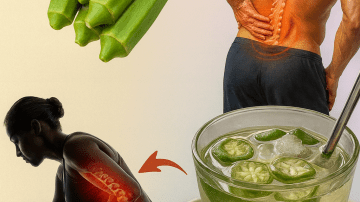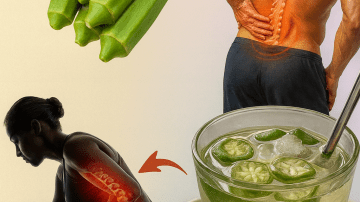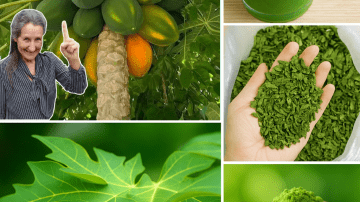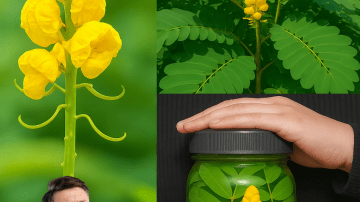Are you aware that one of the most common and beloved snack foods could be placing a silent, yet severe, strain on your vital organs?
Your kidneys are the silent heroes of your body, tirelessly filtering toxins, balancing electrolytes, and managing waste. When they struggle, your entire system falters, often signaled by elevated levels of waste products like creatinine. The health of your kidneys is directly and profoundly influenced by the trace minerals and compounds in the foods you consume daily, especially those that seem small and harmless, like nuts.
The images above reveal a dramatic shift: from a stressed, struggling kidney (Day 01) to a vibrant, healthy one (Day 07), achieved by making a simple switch in your daily nut intake. This isn’t about eliminating all nuts; it’s about making strategic, scientifically sound choices to minimize the toxic load and maximize the protective nutrients.
Get ready to discover the 3 Nuts You Must Avoid and the 4 Kidney-Saving Nuts You Should Embrace immediately. This comprehensive guide will explain the chemistry behind why certain nuts burden your kidneys and how a simple dietary swap can be the key to supporting clean, efficient filtration and reclaiming your vitality.

🚨 The Hidden Danger: Why Certain Nuts Stress Your Kidneys
The core reason certain nuts can be problematic for the kidneys lies in their concentration of a compound called oxalate. Oxalates are natural substances found in many plant foods that, when consumed in excess, can bind with calcium and form crystals in the urine. For vulnerable kidneys, this can contribute to kidney stone formation and place extra strain on the delicate filtering units (nephrons).
❌ The 3 Nuts to Avoid (The High-Oxalate Offenders)
If your goal is to reduce kidney strain and support optimal function, these three popular nuts should be strictly limited or avoided entirely, as they top the list for oxalate content.
- 🚫 Almonds: Though lauded for Vitamin E, almonds are notoriously high in oxalates. For individuals prone to kidney stones or with pre-existing kidney conditions, a daily serving of almonds can contribute significantly to oxalate accumulation.
- 🚫 Cashews: A creamy favorite, cashews also contain a high concentration of oxalates. While they are a great source of minerals, their potential to contribute to crystal formation makes them a high-risk choice for kidney health.
- 🚫 Pine Nuts: As depicted in the image, pine nuts are another high-oxalate offender. Their inclusion in the “avoid” category is due to their small size allowing for high quantities to be consumed easily, leading to a concentrated dose of oxalates.
- The Takeaway: The goal is not to eliminate these forever, but to recognize their potential risk. If you have any kidney issues, consider replacing them with low-oxalate alternatives to give your kidneys a critical rest.
🌟 The Kidney-Saving Swap: 4 Nuts to Embrace Now
The good news is that many nuts are low in oxalates and simultaneously rich in nutrients that actively protect and repair kidney tissue, making them essential additions to a kidney-friendly diet.

✅ The 4 Kidney-Saving Nuts (The Low-Oxalate, High-Protection Heroes)
These four nuts are generally considered safer and more beneficial for kidney health due to their lower oxalate levels and high concentration of specific, protective compounds.
- ⭐ Macadamia Nuts: These are very low in oxalates and offer a great source of healthy monounsaturated fats. They are gentle on the kidneys and provide clean energy without the high mineral load of other nuts.
- ⭐ Walnuts: Known for their exceptional content of Omega-3 Alpha-Linolenic Acid (ALA), walnuts are powerful anti-inflammatory agents. Chronic inflammation is a key driver of kidney disease; by reducing systemic inflammation, walnuts directly support kidney function.
- ⭐ Pecans: Another nut with a favorable, low-oxalate profile, pecans are rich in antioxidants, which help protect the delicate cells of the nephrons from oxidative stress and damage caused by circulating toxins.
- ⭐ Peanuts (Groundnuts): While technically a legume, peanuts are botanically similar to nuts and, importantly, are significantly lower in oxalates than almonds and cashews. Peanuts are rich in protein and arginine, which supports vascular health—crucial for optimal blood flow and filtration in the kidneys.
- The Strategy: By swapping high-oxalate nuts for these kidney-friendly alternatives, you immediately reduce the risk of mineral crystal formation and increase your intake of anti-inflammatory and antioxidant nutrients.
🔬 The Science of Repair: How Diet Reverses Kidney Stress
The transformation from “Day 01” to “Day 07” shown in the image is rooted in the body’s remarkable ability to heal when the toxic load is reduced and the correct nutrients are supplied.
Understanding Creatinine and Glomerular Filtration Rate (GFR)
Creatinine is a waste product from muscle metabolism, and healthy kidneys filter it efficiently. A high creatinine level (like $7.1 \text{ mg/dL}$) indicates severely impaired kidney function. A healthy level is typically around $0.6 \text{ to } 1.2 \text{ mg/dL}$.
- The Oxalate Connection: High oxalate intake can cause acute tubular injury, temporarily impairing the kidney’s ability to clear waste like creatinine.
- The Anti-Inflammatory Solution: By removing the offending nuts and replacing them with anti-inflammatory foods (like walnuts and pecans), the inflammation in the nephrons subsides, the tubules can recover, and the Glomerular Filtration Rate (GFR)—the measure of how well your kidneys are filtering—improves rapidly.
Fats for Filtration: The Role of Omega-3s
The quality of the fats you consume is as crucial as the types of nuts.
- Protective Fats (The Kidney-Saving 4):
- Monounsaturated Fats (e.g., Macadamia, Olive Oil): These fats improve cholesterol profiles and vascular health, ensuring clean, efficient blood supply to the kidneys.
- Omega-3s (e.g., Walnuts, Flaxseed): These are the most critical fats for kidney health, as they directly reduce inflammation and protect against fibrosis (scarring) in the kidney tissue.
- Toxic Fats (The 4 to Eliminate Now):
- Trans Fats (e.g., Processed snacks, Fried foods): These directly increase inflammation and are vascular toxins, stressing the delicate blood vessels in the kidneys.
- Excess Omega-6 Fats (e.g., Corn, Soybean, Safflower Oils): While necessary, an excessive ratio of Omega-6 to Omega-3 drives systemic inflammation, putting strain on the kidneys.
- Heavily Oxidized Fats (e.g., Reused frying oil): These create massive free radical damage, which the kidneys must work overtime to clear.
- High Intake of Saturated Fats (e.g., Excess Red Meat, High-Fat Dairy): These can contribute to hypertension and vascular hardening, two major risk factors for kidney damage.
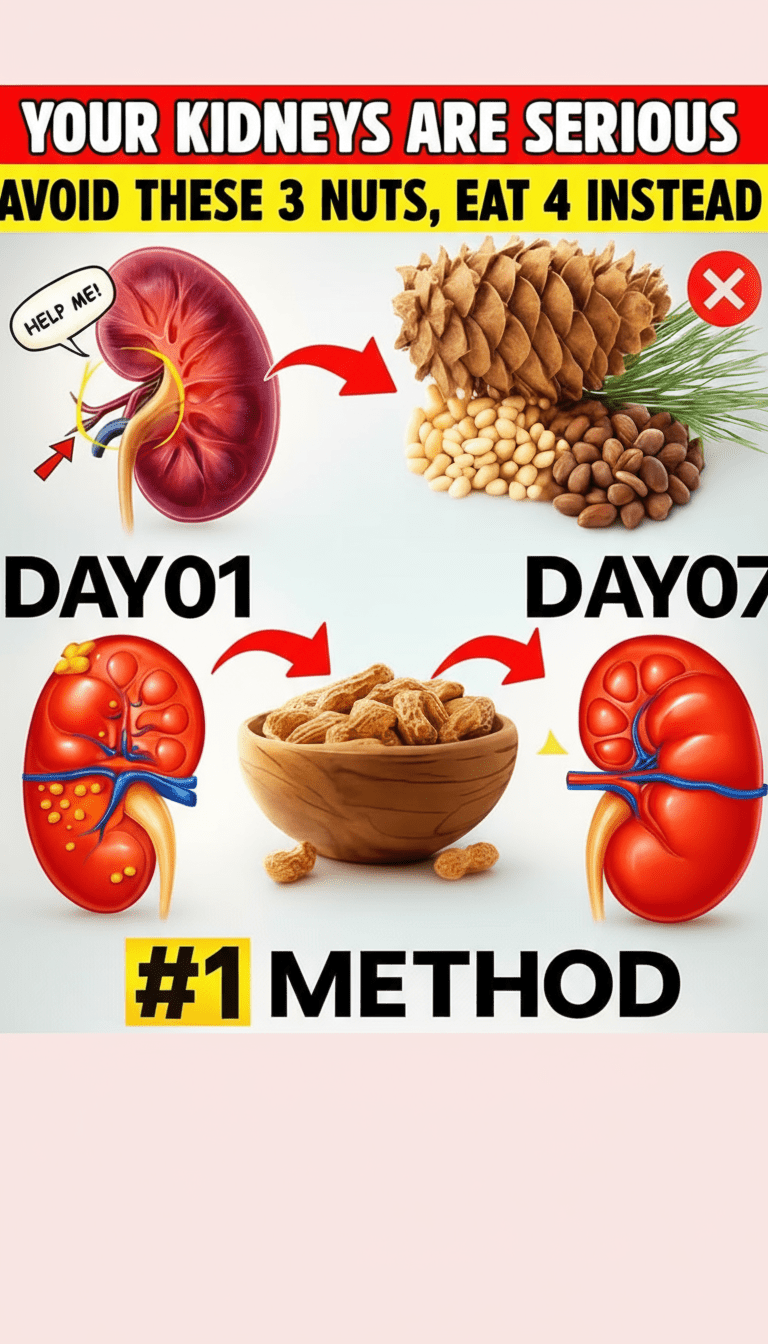
🍽️ Implementing the 7-Day Kidney Reset
Commit to this simple, week-long dietary shift to support your kidneys’ natural healing process.
The Protocol:
- Immediate Elimination: For 7 days, strictly avoid all high-oxalate nuts (Almonds, Cashews, Pine Nuts) and all sources of Trans Fats and heavily oxidized oils.
- Daily Embrace: Incorporate the 4 Kidney-Saving Nuts (Walnuts, Macadamia, Pecans, Peanuts) into your diet daily. A serving size is typically a small handful.
- Hydration is Key: Increase your intake of pure, filtered water to help flush the kidneys and reduce the concentration of any crystallizing compounds.
- Anti-Inflammatory Base: Ensure your diet is rich in kidney-friendly anti-inflammatory foods (berries, cabbage, cauliflower, and healthy oils like olive oil).
By replacing kidney-stressing foods with kidney-protecting nutrients, you reduce the workload on your nephrons, calm inflammation, and support the body’s natural ability to filter. This strategic nut swap is a fundamental, powerful step toward achieving optimal kidney health and regaining your vitality.


